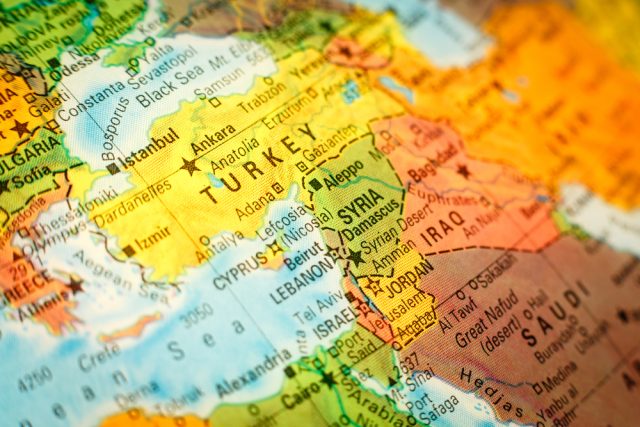
Recently, the multinational UN force set up in Cyprus to curb hostilities between the island’s two ethnic groups marked 60 years since its deployment there. Deployed on 4 March 1964, the UN blue helmets have in recent weeks been awarded a commemorative medal to mark their commitment to the Mediterranean island.
The soldiers have intervened over the decades to keep the peace between the two communities, Greek and Turkish, who live in separate parts of the territory after a long period of conflict and Turkey’s invasion of the northern part of the island in 1974.
The theatre in which they operate is that of the so-called “Green Line”, 180 kilometres long, which separates the internationally recognised Republic of Cyprus from the northern part of the island, called the Turkish Republic and, to date, recognised only by the government in Ankara. Over the course of six decades, more than 150,000 members of the United Nations multinational force have been deployed in Cyprus, of whom about 1,000 remain on the island.
Following Turkey’s intervention on behalf of its own community in 1974, the intervention of UN peacekeepers prevented the conflict from escalating again. However, all efforts to reach a settlement have so far failed. The Greek Cypriots propose a unitary federal state in which both sides would retain their autonomy. The Turkish Cypriots, on the other hand, categorically reject this option, proposing instead a “two-state solution”, using language reminiscent of the Israeli-Palestinian negotiating formula, and making the resumption of talks conditional on the recognition of their independence, a demand firmly rejected by the international community.
In January, UN Secretary-General António Guterres appointed a special mediator for Cyprus, Maria Angela Holguin Cuellar, a Colombian diplomat with extensive experience. In 1986, Cuellar was one of the negotiators of the landmark peace agreement between the Colombian government and the Marxist guerrillas of the FARC.
During these years, thanks in part to the peacekeeping work of the UN’s Blue Helmets, Cyprus, which became independent from the British Empire in 1960, was able to develop its democracy on the Greek Cypriot side, even though its capital, Nicosia, was divided in two, like Berlin at the time of the Wall and the Cold War.
Since the 1980s there have been regular diplomatic meetings and negotiations, often under the auspices of the UN, but the question of a possible reunification of Cyprus remains unresolved.
The dispute over the territory has ancient origins, as it lies close to the Turkish and Syrian coasts and has been at the centre of claims first by the Romans and Byzantines and later by the British and Ottoman Empires.
In 2004, the Republic of Cyprus became part of the European Union, although it is still very difficult to talk about reunification between the two disputed territories, Turkey and the EU.
These days, the island is also the logistical hub of the humanitarian corridor across the eastern Mediterranean, bringing aid to the people of Gaza, who are in the grip of Hamas and are struggling with the Israeli response to the terrorist attacks of 7 October.
From 29 March, the second event of this year’s European Cultural Weekend will take place in Nicosia, the ECR Party. Until 31 March, right in Cyprus, a significant choice, given the historical importance and geostrategic position of the island for the whole of Europe.
The diversity of conservative thought in the European context is expressed in different forms, reflecting cultural, historical and social differences between regions.
The conference, which will take place on the 20th anniversary of Nicosia’s accession to the European Union, will feature several panels on key issues such as energy sustainability, security in the Mediterranean, the ECR plan for the EU and Europe’s Judeo-Christian roots.



 Subscribe
Subscribe